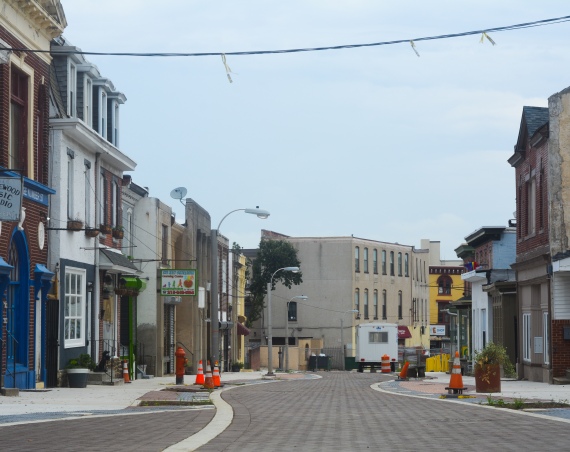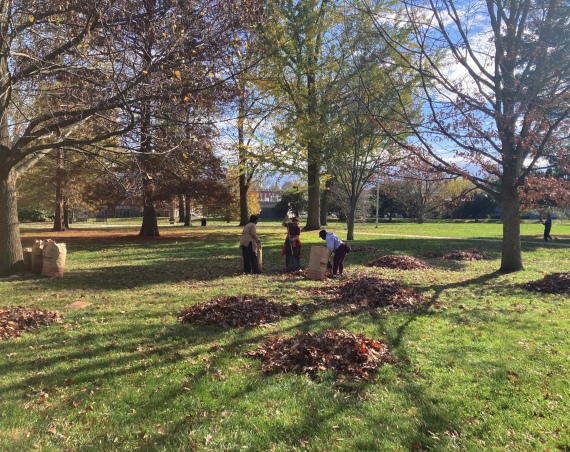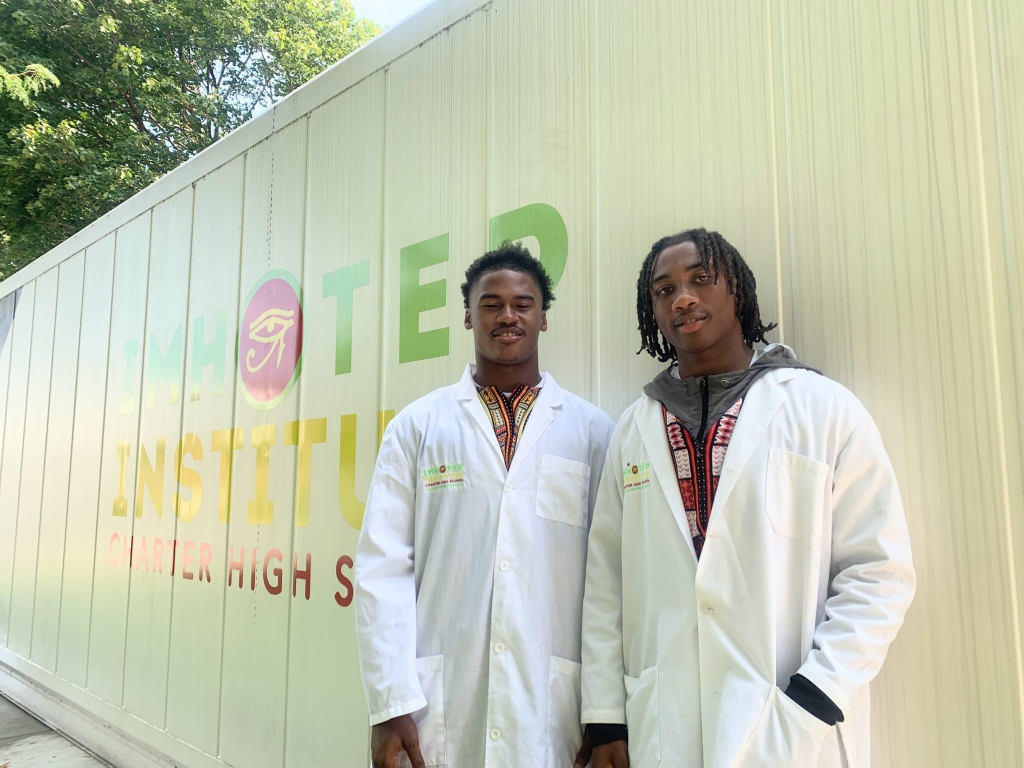
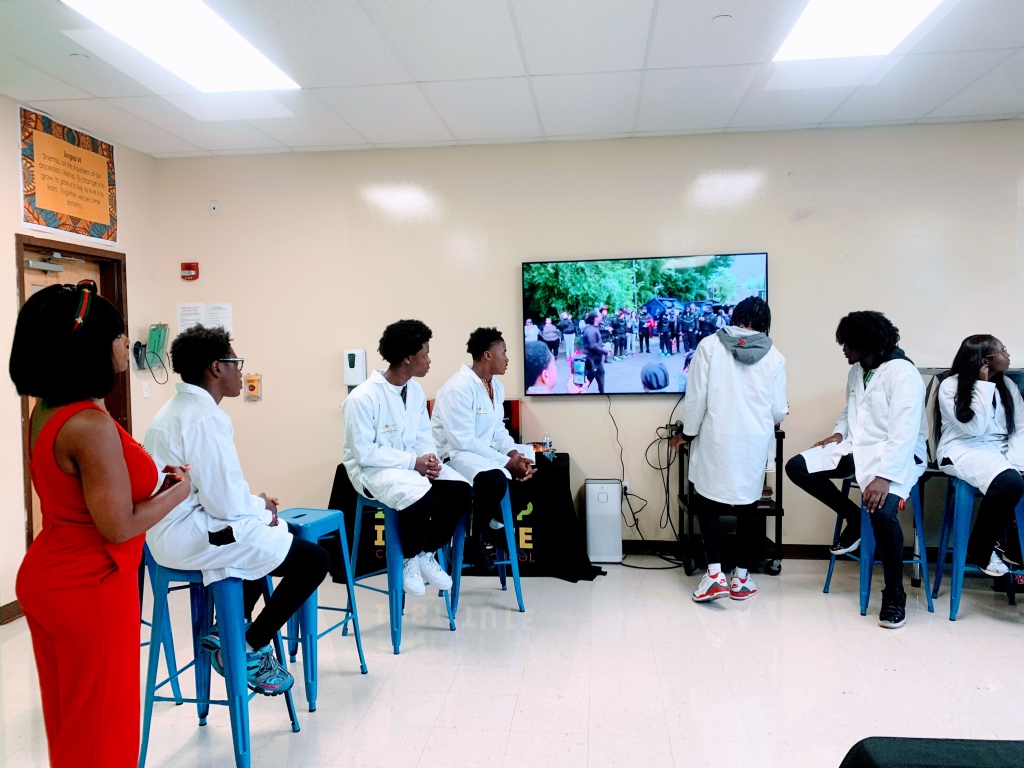
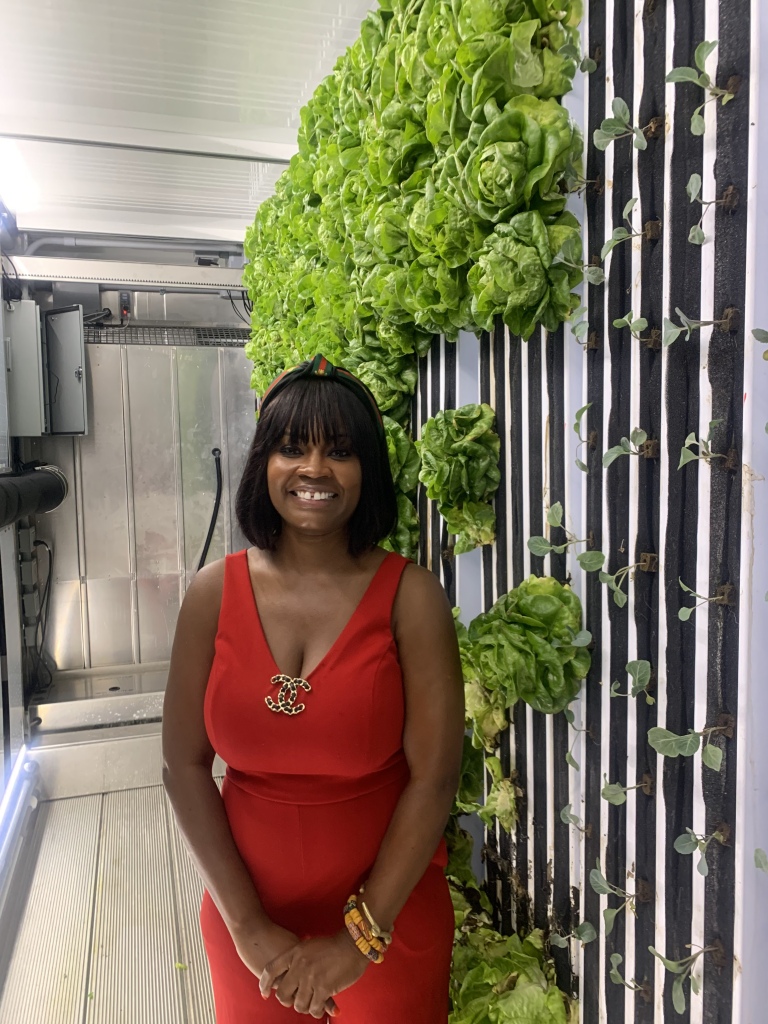
African-centered Science, Technology, Engineering, and Math (STEM). What does that look like? It could look like 3D printing of water purifying filters made from recycled plastic water bottles. It could look like designing a hydroponic farm and selling the vegetables you grow in the community around you.
It looks like all this and more at Imhotep Institute Charter High School in Germantown, an “African Centered, science, mathematics, and technology-learning center whose mission is to provide a standards-driven, high-quality educational program for urban learners grounded in the Afrikan Principles of Ma’at and the Seven Principles of the Nguzo Saba.” Their STEM Ambassadors program is creating innovative and rigorous ways to learn STEM and serve communities in direct experiential projects.
“Last year was our first year really putting together what African-centered STEM looks like, what it feels like, what it sounds like, so we’re really excited about going into year two because we are journeying into building a sustainable nation,” said Shirley Posey, the director of the STEM Ambassadors program at Imhotep.
“This is what we have here at Imhotep,” she continued. “We have our scholars who are literally taking what they have learned in the classrooms and literally saving the world and addressing climate change issues.”
This year, the team addresses the “plastic age,” our current time where the production of plastic has grown exponentially, and plastic pollutants are found throughout our natural world. They are taking recycled plastic bottles, putting them through a filabot, and creating mono-filament, which can be used in 3D printers. They will then use the filament in the 3D printer to create prosthetics and plastic hydroponic systems (systems that grow plants without using soil and instead nutrient-based water). Their main focus this year is to produce high-quality water filters to use in areas that need their water cleaned.
They’ve already made service trips to Jackson, Mississippi, and Ghana to bring their tested 3D-printed water filters to these areas, both of which have had problems with clean water. Students made connections about how Ghana had a lot of plastic trash, and so did the city of Philadelphia. These water filters are one way to solve problems with growing plastic waste.
The program works in teams with an engineering and design team and, specifically, a water quality and air quality team. They’re learning through mission-driven research and conducting tests and trials to work out solutions to real-life problems here in Philadelphia and around the world.
It’s all timely, with headlines like a water chemical spill and air quality alerts happening this year alone in Philadelphia.
Isaiah Prater, a scholar-athlete and STEM Ambassador said he and his classmates put the learning and exploring they’re doing in class into real-life situations all the time.
“The Canadian fires that were passing over,” said Prater. “We actually had air quality monitors, so we were finding out solutions the day it happened. We were texting in group chats about how we could solve this on the day it happened.”
Prater is one of many STEM Ambassadors who are scholar-athletes, students in the program who are also in the Imhotep sports programs.
Kenneth Wosely Jr, a 12th grader and another scholar-athlete, who will attend Penn State next year, is proud of how the program represents athletes in particular.
“To me, I’m also a scholar-athlete,” said Wosely. “I play football at Imhotep Charter. My passion and working in the STEM field is changing the narrative of how they view us as young African American men… that they think all we can do is play sports. Being in the STEM program made me passionate about doing the service work and being on the service trips. It shows that I’m bigger than just an athlete, and I can also be great on the field and off the field.”
Two Imhotep STEM Ambassadors went to the SEPTA Gas and Heating Plant in NIcetown’s permit renewal hearing this past summer to give testimony on air quality. Jeremiah White, who testified that living next to gas and heating plants would impact nearby neighbors’ air quality, is also a scholar-athlete. He mentioned how important air quality is to athletes taking in more air as they participate in sports.
Jaida Jordan, a 12th grader and another STEM ambassador, said the program also improved her confidence in public speaking. “We do a lot of interviews and a lot of talking at conferences, so I have a lot of practice,” said Jordan. She feels more outgoing in all parts of school since she joined, with the recommendation from her mom and one of her teachers who said they needed more girls in the STEM program.
This fall, the STEM Ambassadors plan a trip to Sapelo Island, right off the coast of the state of Georgia, where they’ll be working with the revitalization project on the island to build hydroponics and help with their water filtration systems. They’ll also be returning to Ghana at some point next year to help sustain and stabilize the water filtration systems they were working on.
The work is all important and timely, says Posey, because many countries across Africa and Black and brown communities in the U.S. still have limited access to clean water.
To learn more about the Imhotep STEM Ambassadors and how you can help support their mission, check out imhotephighschool.com, where you’ll also find a short documentary on their service trip to Ghana.

